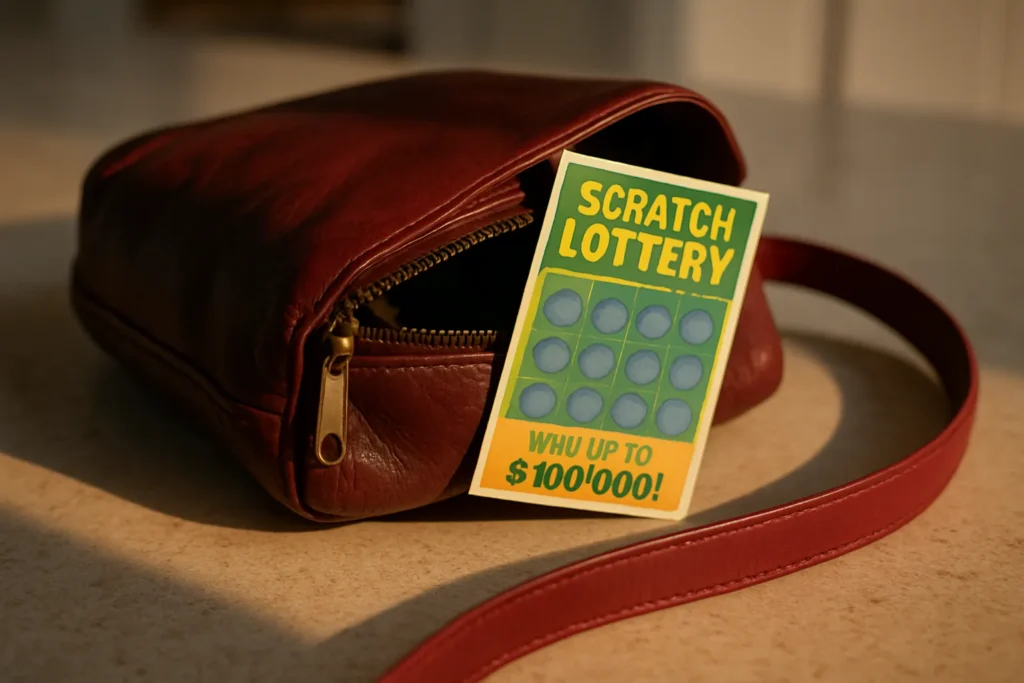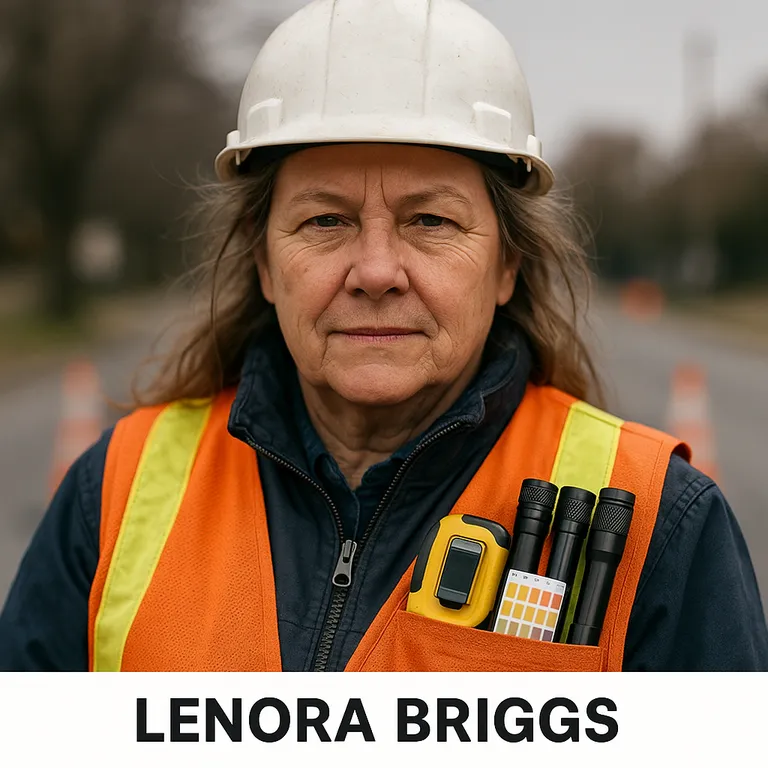When a South Carolina resident reached into her everyday purse and brushed against a forgotten scratch-off, she expected nothing more than loose change. Instead, the thin rectangle of cardboard unlocked $200,000—and, according to neighbors, a jolt of possibility that now pulses through the entire community. This report unpacks how a single ticket, once wedged between grocery receipts, is reshaping local conversations about money, luck, and shared opportunity.
Discovery in the Dark: From Quiet Errand to Public Turning Point
Late last month, the winner—who has asked to remain unnamed—found herself clearing out her purse after a routine grocery run. Tucked behind a tube of lip balm sat the unopened 50X scratch-off her husband had slipped in days earlier. The odds of claiming the top prize in that game are just 1 in 750,000, according to the State. When the silver coating peeled away to reveal five matching numbers, she says her first sensation was not joy, but weight: weight of new choices, weight of sudden responsibility. The discovery instantly transformed an everyday household into a focal point of townwide attention.
Neighbors describe hearing a quick, startled cheer before word zipped across front porches and local group texts. Within an hour, the corner convenience store that sold the ticket was fielding a surge of customers eager to try their own luck. Clerk Raymond Ortiz tallied a 42% spike in scratch-off sales that afternoon—proof, he says, that “hope moves faster than cell service.”
“One minute she’s clipping coupons, the next she’s rewriting the family budget—and maybe ours too,” said Ortiz, shaking his head behind the counter.
Historians of small-town fortune note that this is not an isolated pattern. A 2023 case in Summerville saw a shopper forget a ticket in her car door, only checking it days later to find the same six-figure prize, according to Live 5 News. Each delayed discovery, experts argue, magnifies suspense and multiplies the communal shock wave once the truth breaks. Residents here now speak of “purse miracles” and “dashboard jackpots,” everyday hiding spots that may secretly cradle life-altering numbers.
For the winner, the first move was practical: sign the back, place the ticket in a sealed plastic bag, and drive straight to the South Carolina Education Lottery office in Columbia. She declined a public photo, but her statement emphasized gratitude and caution: “This blessing is bigger than me; it belongs to my family and my community.” That choice—to remain largely private—has fueled local debate about transparency versus safety when sudden wealth arrives unannounced.
Next steps, say financial counselors, start with a pause. Like cooling a hot engine, the pause lets emotion settle so clear plans can form. Town residents now watch closely to see which causes, businesses, or debts the family may tackle first—and whether their spending will echo beyond their own front yard.
Shockwaves in Dollars and Mindset: How $200K Redraws the Local Map
The South Carolina Education Lottery confirmed the payout within forty-eight hours. Almost immediately, local economists projected a ripple effect worth far more than the initial sum. An injection of $200,000 can migrate through restaurants, hardware stores, and rental units, especially in communities where each purchase “recycles” dollars among neighbors. Analysts estimate that every single lottery dollar can circulate up to seven times before it leaves town limits.
Business owner Carla Jenkins has already noticed new interest in her remodeling services. “People see big money hit close to home and think, ‘Maybe it’s time to invest in my kitchen too.’ It creates a domino of optimism,” she said. School leaders hope a portion might support classroom grants; the winner’s niece is a second-grade teacher who has long campaigned for better reading software.
“We’re talking about more than one family’s bank account,” noted regional planner Dr. Ellis Ramirez. “A win like this rewrites collective morale. Folks walk taller, spend differently, and dream bigger.”
Yet not all aftershocks feel rosy. Some neighbors worry that sudden cash could inflate rental prices or spark envy. Pastor Leonard McCall has scheduled a town hall on financial ethics, fearing that unchecked speculation might fracture relationships. He points to a 2024 Spartanburg case where a wife nearly trashed a winning ticket—an accident that led to weeks of tension over trust, according to UPI. McCall’s message: windfalls expose existing cracks; their repair demands collective patience.
Midweek, the county’s economic development board added the story to its monthly agenda. Members will explore whether temporary tax incentives could encourage winners to invest locally—an idea likened to planting seeds in hometown soil before dollars drift to big-box stores or distant vacation homes.
Halfway through the discussion, residents received their first visible sign of change: a new roof being delivered to the winner’s house. Children gathered on bikes, tracking each shingle like a scoreboard of possibility.  That scene—ordinary men unloading supplies—felt almost ceremonial, a public ritual marking the moment the abstract prize became tangible steel and tar paper.
That scene—ordinary men unloading supplies—felt almost ceremonial, a public ritual marking the moment the abstract prize became tangible steel and tar paper.
In grocery aisles and barber chairs, the phrase “If it were me…” now begins countless conversations about student loans, medical bills, and modest dreams like screened-in porches. The story has effectively become a live workshop in community aspiration, forcing practical questions: How should we steward surprise wealth? When does private money become public narrative? And could this be the spark that nudges others toward saving, investing, or simply double-checking forgotten pockets?
Guarding Hope: Practical Steps for Handling an Unexpected Lottery Prize
While the winner’s name stays private, her process is quickly turning into a teaching case. Financial advisers say the initial 48 hours set the tone for the next 48 years. Below is a clear, step-by-step list families can follow if fortune ever lands unannounced:
- Secure the ticket: Sign the back immediately, place it in a waterproof sleeve, and lock it away.
- Verify quietly: Call the lottery hotline from a private space to confirm the amount before sharing news widely.
- Assemble a “dream team”: Find a certified public accountant, a fiduciary financial planner, and an attorney who specializes in trusts.
- Pay off high-interest debt first: Treat it like patching a roof before a storm.
- Set a cooling-off period: Wait at least 30 days before large purchases; let excitement settle so math can lead choices.
- Create a giving plan: Decide in advance how much—if any—will go to charities, relatives, or community projects.
- Invest for endurance: Diversify into low-fee index funds or local bonds to stretch the windfall across decades.
Certified planner Dana Wills likens a lottery ticket to an unexpected seed. “Plant it well, and generations can harvest,” she says, “but leave it on the sidewalk and birds will carry it away.”
“We always hear about winnings lost in five years,” Wills warns. “That is not fate; it’s simply poor planning dressed as destiny.”
She advises winners to visualize money as a flowing river rather than a stagnant pool. A controlled current can power community mills—new businesses, scholarships, affordable housing grants. In contrast, an unmanaged flood can erode friendships and financial footing alike.
Long-time residents also suggest small rituals to balance the emotional scale. One is the gratitude ledger: a notebook listing every non-material joy the winner experiences for 30 days. Another is the listening circle: a private gathering where the winner can voice fears without judgment. These habits, local therapists say, keep the heart aligned with practical strategy.
For the public, the lesson runs deeper than numbers. Checking scratch-off tickets carefully, understanding the odds of winning the 50X scratch game, and learning how to protect lottery tickets are now kitchen-table topics. Parents use the story to teach children about probability, while civic leaders spotlight the episode as proof that even overlooked corners of life—like a purse pocket—can carry transformative power.
The next chapter unfolds quietly, but the plot is already etched into town memory. Whether the $200,000 funds a new roof, college tuition, or a neighbor’s first job, residents know they have witnessed more than luck. They have seen an ordinary Wednesday rewritten into a milestone—a real-time reminder that the fabric of local destiny can shift in a single, unsuspecting reach.


